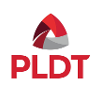
PLDT recently reported its unaudited financial and operating results for the full year 2016 with Consolidated Service Revenues, net of P9.6 billion in interconnection costs, amounting to P147.6 billion, three percent (3%) less than the previous year. Excluding international and national long distance (ILD and NLD) revenues and interconnection costs, consolidated service revenues added up to P133.5 billion, only one percent less than 2015.
Consolidated Core Income reached P27.9 billion, 21% lower than the prior year, mainly due to lower EBITDA and costs arising from higher capital expenditures to support ongoing expansion of the fixed and mobile networks of PLDT and its mobile subsidiary Smart Communications. Net of asset sales, accelerated depreciation, onetime provisions and subsidies, as well as lower taxes from deferred tax assets recognized during 2016, Recurring Core Income amounted to P20.2 billion. Consolidated Core EBITDA declined by 6% to P65.8 billion, representing a margin of 42%, due largely to lower wireless service revenues and higher provisions, moderated by lower cash operating expenses. Including one-time provisions and handset subsidies, the underlying EBITDA amounted to P61.2 billion.
Gross debt amounted to US$3.7 billion, of which only 9% is unhedged. Refinancing facilities for 2017 maturities, including a US$228 million bond which was repaid on 6th March 2017, are in place. As of end December 2016, PLDT’s investment grade ratings remain unchanged. Contribution of Business Units: Data lead the way Viewed in terms of the contribution of the Company’s major business units, PLDT Home and Enterprise, which together account for 47% of consolidated service revenues, net of International businesses, have set the pace, growing by 10% to P29.3 billion and 9% to P30.6 billion, respectively.
Data and broadband have been the key growth drivers for both business units. In the case of PLDT Home, data and broadband revenues grew 14% to P17.6 billon and now account for 60% of its service revenues. For the Enterprise Group, these service revenues rose by 22% to P19.2 billion and comprise 63% of its total. The Wireless Consumer Business Group, which consists of the mobile services for individual customers of Smart and Sun, generated service revenues of P66.4 billion – 9% lower than the previous year, due to declines in SMS and domestic voice revenues. On the other hand, mobile data grew 20% and now accounts for 34% of total service revenues, ahead of SMS and domestic voice revenues with shares of 33% each.
“We faced very tough tests in the past year as competition intensified and the shift to digital services accelerated. Our results reflect the impact of these challenges, but also point to us the way forward. We are focused on growing our data and digital services. We are doing this by building more advanced and resilient fixed and mobile networks and offering compelling digital services. We are capitalizing on the momentum of our Home and Enterprise businesses, which have more headroom for growth and enjoy significant advantages in terms of superior digital network infrastructure and brand strength. Considering that starting 2017, more than 50% of our revenues (net of ILD), from Home and Enterprise represent a significant engine for growth. At the same time, we are re-energizing our wireless consumer business by focusing on quality subscribers. Number of subscribers is not as important metric as it was before. We are improving customer experience through better network services, and, by offering progressively more relevant and targeted products and services,” said Manuel V. Pangilinan, PLDT Chairman and CEO.
Network Build-out: Promising initial results
Underpinning PLDT’s digital pivot is its drive to build superior fixed and mobile networks through a comprehensive network modernization and expansion program. Substantial resources are being channeled into this effort. Of the P48 billion allocated for capex in 2016, P42.8 billion were actually spent. The balance pertains to projects pending completion or acceptance. Capex for 2017 is budgeted at P46 billion, inclusive of carry-overs from 2016. These investments have been producing promising results in improving overall network quality.
Alongside the expansion of its mobile data network, Smart is also deploying a robust network of carrier-grade WiFi installations, initially in 20 major airports, four seaports and the Light Rail Transit System in Metro Manila. Moving forward, Smart WiFi is being deployed in a growing number of public spaces of local governments and commercial areas, schools and retail, entertainment and other establishments.
With respect to PLDT’s fixed line network, the deployment of fiber-tothe-home (FTTH) has been stepped up and now already covers 2.8 million homes passed by end-2016. The target is to reach 4.4 million homes passed by end-2017 and about 6 million homes by 2020. Complementing the deployment of fiber lines, PLDT is also rolling out this year hybrid fiber technologies such as G.fast that deliver fiberlike speeds through copper lines in buildings and residences. This will transform PLDT’s extensive copper network into powerful channels for delivering high-speed internet services.
Wireless Consumer Group: Stepping up the shift to data
Moving forward, all the mobile phones that Smart is promoting in its various prepaid and postpaid offers are LTE-compatible handsets. This effort to promote LTE devices, which can fully utilize the upgraded network being deployed, started in 2016 and has been gaining traction. Among others, the shift is being done through partnerships with leading smartphone manufacturers such as MyPhone, Oppo, O+ USA and Starmobile which offer midrange and affordable LTE devices bundled with Smart LTE Sim cards.
Smart is also stepping up its efforts to encourage its retailer network to use smart phones and promote various data service packages. While the thrust is emphatically on data, Smart is also balancing its popular data offers such as GigaSurf 50 by enhancing it with an Unli text offer to all networks. In the case of All Out Surf packages, data is combined with Unli all-net SMS and allocations for calls to Smart, TNT and Sun. Today’s plans are bundles of SMS and calls, but principally anchored on data, in step with how the customer is changing.
In Smart postpaid, the thrust is to provide customers with more and better choices. A new set of enhanced Giga Plans has just been launched which offer a wide range of choices with price points ranging from Plan 399 with 3 Gb of data to Plan 2999 with a data allocation of 36 Gb, depending on the customer’s budget and usage needs. The new Giga postpaid plans also offer subscribers a range of LTE smartphones to choose from that can be paid for on an installment basis rather than a one-time payment.
Another initiative that the PLDT Group is pursuing is converged offers. This is done by bundling PLDT’s fixed line services with the mobile services of Smart, as well as content from CignalTV. In January 2016, PLDT Home introduced the country’s first data sharing plan (Speedster Fam Plan 1299) that allows fixed line subscribers to share their data allocation with up to four Smart mobile phone lines bundled with the plan. This initiative won the digital innovation award from the CIO Asia Awards.
The mobile business is also offering bundled services with Smart and Sun now both offering prepaid packages that include voice calls to Smart, Sun, TNT and PLDT landlines. Sun’s new TU200 prepaid package for example includes five hours of calls to Sun, Smart, TNT and PLDT landlines along with generous text messaging and mobile app chat allocations. Finally, PLDT Home is offering bundled services in fixed line voice and data with video content with CignalTV, branded “Cignal over Fibr.”
PLDT Home: Building on strengths, seizing opportunities
PLDT’s extensive and robust fixed line and digital infrastructure gives its Home and Enterprise Groups the opportunity to capture the large growth opportunities in their respective markets which have much lower penetration rates than the mobile consumer market. The fastexpanding footprint of PLDT’s FTTH service now reaches the country’s key urban areas in the North such as the cities of Laoag, Baguio, Vigan and Tuguegarao stretching down to the major cities of the South such as Davao, Cotobato, General Santos, Koronodal and Zamboanga.
The deployment of hybrid fiber technologies this year will further extend the reach of PLDT’s fiberspeed internet service. PLDT Home’s new suite of Fibr plans makes its unmatched high-speed internet service available to households in these areas either on data volume or time-based based allocations, with data speeds ranging from 3 Mbps to 1 Gbps at affordable rates. This connectivity service provides a robust and cost-efficient platform for PLDT Home to offer its growing portfolio of entertainment, “peace of mind” and other “Smart Home” services.
PLDT Home now offers for example the widest range of live TV and video-on-demand content through the efforts of its affiliate, Cignal TV and its partnerships with leading global content providers and aggregators such as Roku, Iflix, Netflix as well as leading Philippine entertainment content providers such as iWant TV. It has also partnered with global e-commerce giant Amazon to provide an enhanced online shopping experience for Filipino families, including online books via the popular Kindle e-book reader. PLDT Home is also progressively enhancing its suite of family security services which now include Fam Cam, the CCTV service that lets parents check and talk with their children at home while they are at work; Fam Zone, which enables parents to properly manage their children’s access to the Internet; and Smart Watch, which allows parents to track their children’s locations and get notifications when they go beyond a predefined “safe zone”.
PLDT Enterprise: Promoting converged digital solutions
PLDT’s Enterprise Group is moving aggressively to address the rapidly growing appetite of enterprises and Government agencies – large and small – for solutions that combine fixed line and mobile connectivity with digital platforms. It is uniquely positioned to do so because of its best-in-class infrastructure, partnerships with global technology leaders and its extensive and longstanding relationships with the country’s leading businesses and key government agencies.
Aligning its efforts with industry roadmaps, PLDT has built the country’s largest and most resilient network of data centers in different parts of the country. In March 2017, PLDT subsidiary ePLDT opened its eighth data center in Davao City (the first in Mindanao) and its ninth in the Clark Freeport zone, Pampanga. It is scheduled to open its 10th Vitro data center in Cebu by end-2017 which will give PLDT’s data center network an unmatched total capacity of over 9,000 racks.
With these digital platforms, PLDT is offering cloud solutions that for example enable companies to provide an enhanced and secure web service for their customers in partnership with Akamai, a global leader in content delivery network (CDN) services provider for media and software delivery, and cloud security solutions.
Conclusion
“In 2016, PLDT and its subsidiaries have all recognized the need to undertake a ‘digital pivot’ to maintain and enhance its market leadership, amid major shifts in technologies and market. As a result, we have embarked on a three-year journey to profoundly transform our business and organization. We are building superior, future-proof networks and IT platforms to deliver the best possible service experience to our customers. We have revamped our organization and are undertaking efforts to implant a digital corporate culture that will enable us to better serve our customers in this digital age,” Pangilinan said.
Pangilinan said that the appointment of new senior executives in the fields of Network, HR, Customer Experience and Data Analytics, and Platforms strengthens PLDT’s efforts to better serve customers in a focused and systematic way. He cited among others the designation of Eric Alberto as Chief Revenue Officer and Atty. Ray C. Espinosa as Chief Corporate Services Officer as among the measures taken to create an organizational framework that will raise to a new level collaboration among various business units within the PLDT Group.
“The year 2016 has been a period for resetting of the many dials of our Company. Profitability has been reset to a lower level, reflecting the impact of the changes in the business, our customer base and our organization. This has provided us a new baseline from which we can build upon, and grow. This new reference point is the P20.2 billion in Recurring Core Income without exceptionals that was attained in 2016. From there, we are setting out to achieve sequential recovery in profitability, starting with an increase in the Recurring Core Income to P21.5 billion in 2017, a growth of 6+% - the first time in three years. That will be put us back on the path to sustained growth and improving profitability, this year and in the coming years” he added.

